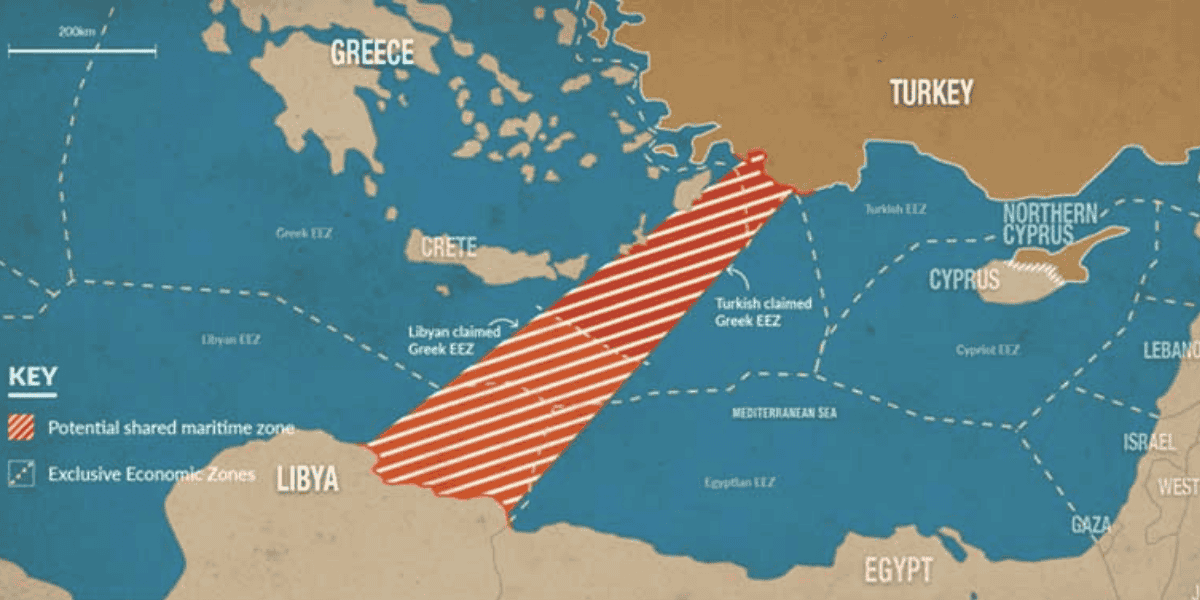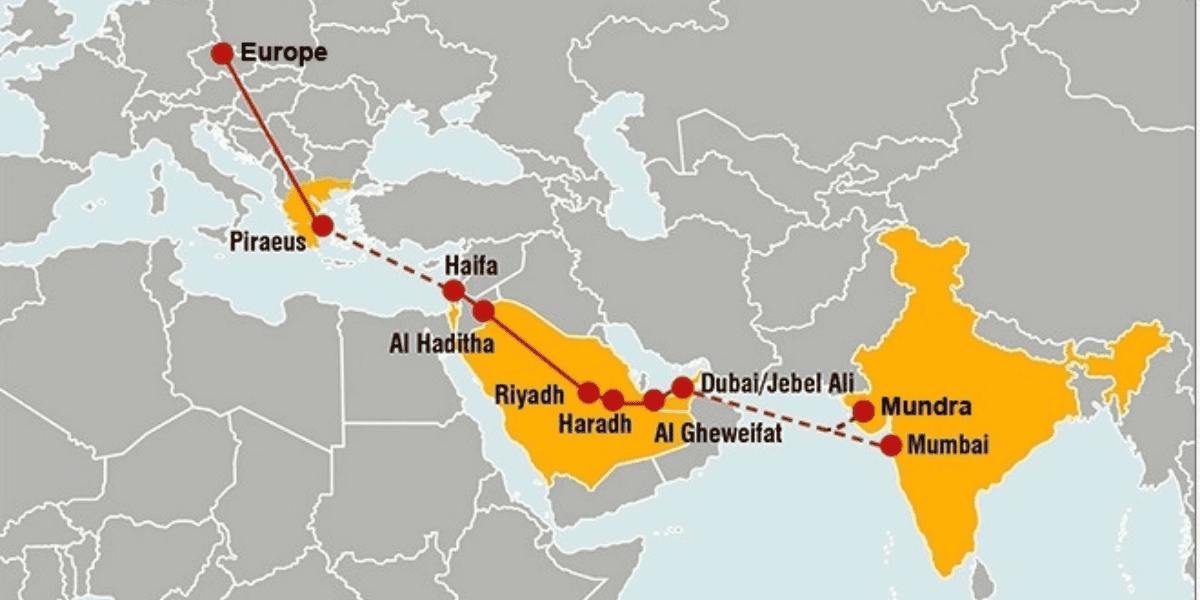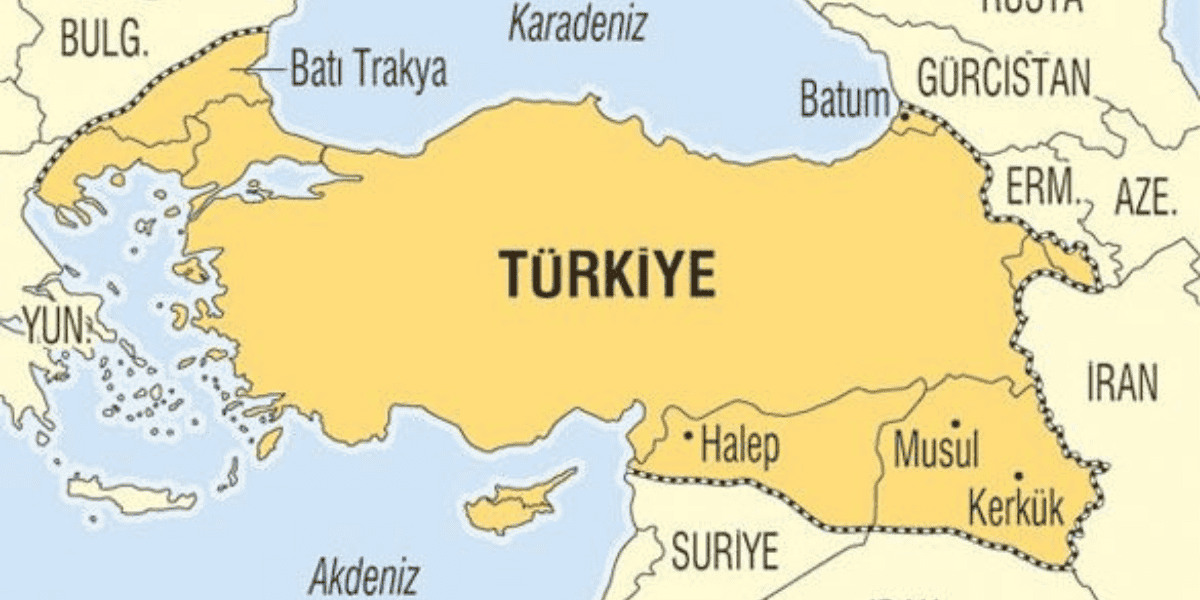Meanwhile, during a phone call with Austrian Chancellor Karl Nehammer, Turkish President Recep Tayyip Erdogan said that all terror groups operating in Syria must be eradicated.
“President Erdogan said that Syria has entered a period when its people will decide about the future of their country. And it is vital to eliminate all terrorist organizations, including the Kurdistan Workers’ Party and Islamic State (to defend its territorial integrity,” Erdogan’s office said.
Erdogan told Nehammer that Syrian refugees begin to return to their homeland and noted that this process will depend on living conditions in that country. “President Erdogan also stated that support from the international community is needed to recover Syria and its infrastructure destroyed as a result of the civil war,” it added.
Turkey’s Wicked Game?
The prominent role played by Turkey (Türkiye) in toppling the over five-decades-long Assad-family regime in Syria has once again brought focus to a country that is playing an outsized role in global geopolitics despite a wrecked economy, severe domestic disturbances, and few true friends on the international stage.
From Libya in northern Africa to Cyprus in the Mediterranean, Syria and northern Iraq in the Middle East to the borders between Armenia and Azerbaijan, there is one common thread: Ankara. Turkey’s reckless foreign policy is on full display in all these states.
By destabilizing these regions, one state at a time, Turkey is slowly but certainly expanding its strategic footprint from northern Africa to the Middle East, Asia Minor and the Caucasus, the Black Sea and the Balkans, and the Mediterranean.
Turkey has successfully weaponized the refugee problem to blackmail and arm-twist the European Union while at the same time recruiting these refugees to export mercenary Jihadist fighters from Syria to Libya.
Turkish President Recep Tayyip Erdoğan is trying to position himself as the leader of the Sunni world, a neo-Ottoman Sultan, and simultaneously focusing on the revival of a “greater Turkey” that renews a classical, civilizational model of the Ottoman Empire’s legacy.
Ankara’s promotion of a pan-Islamist, Neo-Ottoman ideology has dangerous implications for the whole Middle East, the eastern Mediterranean world, northern Africa, Asia Minor, and the Balkans, and its ramifications are felt as far as in Pakistan, south-western China, and Malaysia.
It is remarkable how Ankara is pulling this off despite a flailing economy with one of the highest inflation rates in the world, severe domestic upheavals in the Kurdish-majority areas, and a serious lack of genuine friends on the international stage. It can be a textbook case of how to punch above your weight in the global arena.
Syria And Iraq
Turkey has never made a secret of its involvement in Syria and Iraq. When the Syrian rebel offensive began in late November, if anyone had doubts regarding Turkish involvement, Erdogan made it clear in a statement on December 5, two days before rebels captured the Syrian capital and Assad power base Damascus.
“Idlib, Hama, Homs, and, of course, the ultimate target is Damascus. The opposition’s march continues,” Erdogan said. “Our hope is that this march in Syria proceeds without any accidents or troubles.”
Erdogan reminded that he had invited Syrian President Bashar al-Assad multiple times this year for talks to “determine Syria’s future together,” but Assad did not respond positively to such a meeting.
Turkish newspapers have reported in detail the support Syrian rebels received from Ankara.
Hurriyet newspaper reported that the National Intelligence Organisation, Ankara’s intelligence agency, has been “closely monitoring the field for the past three months and has made all necessary preparations through both diplomatic and intelligence efforts.” The report further said that the Turkish intelligence assets were “fully on the ground.”
The newspaper further claimed that wherever Russian assets were on the ground, they were informed in advance to vacate the area to avoid direct clashes with Russian forces.
While Hayat Tahrir al-Sham (HTS) led the main offensive, it was mainly backed by the Turkey-backed Syrian National Army (SNA). Some of the SNA battalions, like the Sultan Suleyman Shah Brigade and the Sultan Murad Division, are even named after Ottoman figures.
Leila al-Shami, a Syrian author and human rights campaigner, told Middle Eastern Eye that “The SNA is really pursuing a Turkish, not Syrian, agenda.”
Assad Was A Sideshow, Turkey’s Main Target Is AANES
Analysts say that Turkey has few objectives in Syria – to topple Assad and cut to size the US-backed Syrian Kurdish forces (SDF), attack the Kurdish-led Autonomous Administration of North and East Syria (AANES), and weaken the Kurdistan Workers Party (PKK).
While headlines were dominated by the fall of Damascus and the inglorious escape of Assad, it should be noted that Damascus fell without any fight. The real, intense fighting in Syria happened around Manbij, a city in Northern Syria controlled by US-backed Syrian Kurdish forces (SDF).
Here, intense battles were fought between Turkey-backed SNA and the Kurdish SDF. On December 9, Turkish officials told the media that Manbij had fallen to SNA forces.
The Kurdish SDF is the main ally in a U.S. coalition against Islamic State militants. However, Turkey says it is spearheaded by a terrorist group closely tied to the outlawed Kurdistan Workers Party (PKK) militants who have fought the Turkish state for 40 years.
As the events are unfolding in Syria, it is clear that as far as Turkey is concerned, Assad was only a sideshow, and their main target is to attack the Kurdish-led Autonomous Administration of North and East Syria (AANES).
Similarly, Turkey has repeatedly interfered in Iraq, mostly to attack the Kurdistan Workers Party (PKK) bases in Iraq. In 2019, Turkey launched Operation Claw, a land and ground assault that saw Turkey establish military bases in Iraqi territory. Since then, Turkey has used these bases to plan attacks and airstrikes, including testing a new ballistic missile in Iraqi Kurdistan.
Libya – The Invisible Turkish Hand
In January 2020, Erdoğan published an op-ed claiming that the “Road to peace in Libya goes through Turkey.” In this op-ed, Erdoğan exhorted the EU to side with Turkey and Libya’s government in the civil war against Khalifa Haftar’s forces, supported by Egypt, Saudi Arabia, UAE, and Russia, among others.
“Keeping in mind that Europe is less interested in providing military support to Libya, the obvious choice is to work with Turkey, which has already promised military assistance…we will train Libya’s security forces and help them combat terrorism, human trafficking, and other serious threats against international security,” Erdoğan wrote in his oped.
However, Turkish involvement in Libya started much before this 2020 OPED by Erdogan was published. Much like Syria, Turkey and Russia have supported opposing sides in the Libyan civil war as well.
While Turkey has been involved in Libya at least since 2016, Ankara’s involvement deepened in 2019 when it began to increase its level of engagement with the UN-backed Tripoli government by sending military trainers, planners, Syrian mercenaries, and armed drones.
On the opposite side, forces allied with Field Marshal Khalifa Haftar received varying degrees of support from the United Arab Emirates, Egypt, and Russia.
By 2021, rival factions backed by Turkey and Russia have carved out and divided Libya into their respective sphere of influence.
The Tripoli government, named the Government of National Accord (GNA) and backed militarily primarily by Turkey, controls the capital and some of western Libya. Though this government is supported by the UN, the U.S., and some Western countries, Ankara is its main military backer.
Field Marshal Khalifa Haftar’s forces, based in Benghazi and named Libyan Arab Armed Forces, control much of eastern and southern Libya.
Apart from influence in Libya, Turkey seeks to safeguard its economic interests in the eastern Mediterranean as part of a broader competition for oil and gas drilling rights. Notably, Libya has the highest oil and gas reserves in Africa. According to the U.S. Geological Survey, the eastern Mediterranean basin is estimated to contain natural gas worth US$700 billion. By meddling in Libya, Turkey has effectively established itself as a serious contender for drilling this gas.
In December 2019, Ankara signed a contentious maritime and military cooperation deal with the Tripoli-based GNA government to create an exclusive economic zone from Turkey’s southern Mediterranean shore to Libya’s northeast coast.

This maritime deal has thrown a spanner into the works of efforts by Cyprus, Greece, Israel, and Egypt to develop East Mediterranean gas by putting a barrier across a proposed pipeline that would run from Israeli and Greek-Cypriot waters to the European mainland.
This proposed exclusive economic zone between Turkey and Libya also means that any international shipping route between the Middle East and Europe has to include Turkey.
Incidentally, the proposed I2U2 (India, Israel, US, UAE) international trade route will also pass through this Turkish-Libya exclusive economic zone, effectively making Ankara a party to this proposed trade route.

Turkey’s message is loud and clear: No Middle Eastern arrangement is possible by ignoring Turkey.
Turkey Also Has A Colony
While discussing Turkey and its belligerent foreign policy, people often miss the point that in the 21st century, Turkey is one of the few countries that still maintains a colony.
Turkey has maintained a colony since 1974, when it invaded Cyprus in response to a Greek coup d’état that aimed to annex the island to Greece. Turkey occupied 37% of the island and displaced 200,000 Cypriots. In 1983, the Turkish Cypriots declared independence and proclaimed the area the “Turkish Republic of Northern Cyprus” (TRNC). Only Turkey recognizes the TRNC.
Turkey follows a policy of ethnic cleansing of Greek Cypriots and has settled thousands of Turkish soldiers in TRNC to change its demography. Turkey is implementing a policy of bringing in thousands of settlers from Anatolia to settle in the occupied area in an effort to change the population and the ethnic characteristics of the population.
As a sovereign entity, Cyprus possesses drilling rights along its coastal waters as per the UN Convention on the Law of the Sea (UNCLOS).
However, Turkey has not signed the UNCLOS, which provides a framework for defining exclusive economic zones (EEZs). Through the TRNC, Turkey claims gas deposits in Cyprus’ maritime zone and that any discoveries of natural gas within Cyprus’ maritime zone must be shared with Turkey. Ankara has increased its naval presence in the region to enforce these claims.
Besides, through its illegal control of TRNC, Ankara can make outlandish claims in the Mediterranean and Aegean seas.
Turkey Replaces Saudi Arabia In Exporting Pan-Islamism
For many years, Saudi Arabia was the chief financier of pan-Islamism. However, during the last two decades, Turkey has quickly replaced Saudi Arabia in exporting pan-Islamism worldwide. Turkey is financing the construction of mosques across the globe, from Latin America to Europe, Africa, and Asia. In many instances, Erdoğan himself officiated the opening ceremonies.
Turkey has also emerged as the key backer of the Muslim Brotherhood, raising tensions with Egypt. Turkey is also becoming an international hub of religious education through its Imam Hatip schools (which Erdoğan attended as a young boy).
Through these steps, Turkey wants to establish itself as the leader of the ‘Sunni World.’
A New Ottoman Sultan Rises
In 2016, Speaking at the Recep Tayyip Erdogan University (RTEU) in the province of Rize, Erdogan made a statement that exposed Turkey’s neo-Ottoman ambitions.
“We cannot draw boundaries to our heart, nor do we allow it. Turkey cannot disregard its kinsmen in Western Thrace (Greece), Cyprus, Crimea, and anywhere else.” This was an open declaration that notwithstanding Turkey’s modern borders and international agreements, Ankara would be involved wherever some remnants of the old Ottoman regime existed, be it Greece, Cyprus, Levant, Asia Minor, Balkans, or Crimea.
Erdogan has criticized the 1923 Treaty of Lausanne, which settled the borders of modern-day Turkey, on more than one occasion.
“Turkey needs to get rid of the psychology of 1923,” Erdogan declared in 2016 while announcing the Turkish campaign in Iraq’s Mosul to clear it of ISIS and Kurdish PKK elements.
Lamenting the Treaty of Lausanne as “unfair” to Ankara that left the country too small, Erdogan said: “The size of our lands, which was 2.5 million square meters in 1914, decreased to 780 thousand square meters when we signed the Lausanne Treaty 9 years later… The real tragedy is the understanding of accepting this situation as the basis and completely imprisoning ourselves in this shell. We do not accept this understanding. The aim of those who imprison Turkey in this vicious circle is to make us forget the Seljuk and Ottoman past. We cannot act with the psychology of 1923 in 2016. Insisting on this is the greatest injustice to the country and the nation. I hereby declare: Turkey has completely left that understanding of security behind.”
Simultaneously, Turkish state media propaganda is pushing new maps of historical Turkish lands that include parts of Northern Syria, Iraq, Armenia, Georgia, Cyprus, and even Greece as part of Turkey.

While these maps of Greater Turkey can be dismissed as exaggerated state-media propaganda, they are an important element of Erdogan’s doctrine, which sees Turkey’s historical claims as spilling over into neighboring countries in Europe, Asia Minor, and the Middle East.
The Mind Behind Erdogan’s Neo-Ottoman Fantasy – The Davutoğlu Doctrine
Erdogan’s rise in Turkish politics definitely represents a critical shift; however, the reintroduction of Ottomanism during Turgut Ozal’s tenure established the conditions for Erdogan’s meteoric rise. At the same time, the ideological foundation for this assertive foreign policy was laid by the work of Turkey’s foreign minister (and academic), Ahmet Davutoğlu, often called the brain behind Erdogan’s foreign policy.
Davutoğlu was the chief foreign policy advisor of Erdoğan before he was appointed foreign minister in 2009. As an academic, he has outlined his foreign policy doctrine in several writings, the most important of which is his book “Strategic Depth,” published in 2001.
In this book, Davutoğlu argues that Turkey possesses “strategic depth” due to its history and geographic position and lists It among a small group of countries that he calls “central powers.”
In his view, Turkey should not be content with a regional role in the Balkans or the Middle East because it is not a regional but a central power. Hence, it should aspire to play a leading role globally.
In Davutoğlu’s view, Turkey is a Middle Eastern, Balkan, Caucasian, Central Asian, Caspian, Mediterranean, Gulf, and Black Sea country. Thus, Ankara can simultaneously exercise influence in all these regions.
Davutoğlu claimed that “Turkey is destined to become a regional hegemon,” merging geographic determinism with cultural agency and Turkey’s historical experience.
Guided by Davutoğlu’s “Strategic Depth” doctrine, Erdogan is recklessly interfering in almost all of Turkey’s neighbor’s internal politics.
Conclusion
Turkey has successfully developed an independent domestic military-industrial complex and has gained leverage by exporting military systems, especially its drone technology. By interfering in countries from Libya, Syria, Iraq, Cyprus, and Armenia, Turkey has expanded its strategic role and its global profile.
However, Ankara must tread carefully as it faces many domestic challenges, including sky-high inflation and unemployment. The Kurdish question is far from settled. Erdogan might have suppressed the 2016 coup, but his increasingly autocratic style of functioning has created political instability in the country.
Also, Erdogan’s adventurism in neighboring countries has spoiled Turkey’s relations with almost all of its neighbors. Ankara is increasingly pushing Greece, Cyprus, Israel, and Egypt closer to each other. Ankara is increasingly isolated in NATO. Its relations with both Iran and Russia are set to deteriorate further after the Turkish-supported regime change in Syria, and its relations with the U.S. could also be strained as Turkey-backed SNA attacks Kurdish-led SDF positions in Syria.
On the international stage, Ankara has few genuine friends, and Turkey’s adventurism is set to make more enemies than friends. Erdogan is, perhaps, repeating Putin’s mistakes, stretching his country too thin and eating more than he can chew.
- Sumit Ahlawat has over a decade of experience in news media. He has worked with Press Trust of India, Times Now, Zee News, Economic Times, and Microsoft News. He holds a Master’s Degree in International Media and Modern History from The University of Sheffield, UK.
- He can be reached at ahlawat.sumit85 (at) gmail.com
- Article Republished With Updated Information
- VIEWS PERSONAL OF THE AUTHOR
- Follow EurAsian Times on Google News
